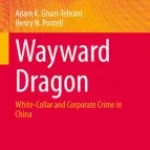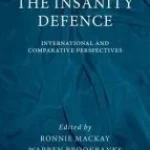The Last Honest Man: The CIA, the FBI, the Mafia, and the Kennedys – and One Senator’s Fight to Save Democracy
 Author: James Risen
Author: James Risen
Publisher: Little, Brown and Company, 2023. 480 pages.
Reviewer: Frederick Martens | June 2023
Criminologists are rewarded with tenure-track positions to conduct research that makes sense of crime patterns on a macro scale. The study of organized crime and political corruption defies this approach. Consequently, criminologists studying organized crime routinely look to a body of investigative journalists whose work seldom finds space in professional journals. James Risen is one of those investigative journalists who, through his meticulous research, has published a definitive book–400 plus pages and 406 footnotes–on the role of the United States government in advancing democracy and containing communism, while simultaneously savaging any semblance of justice or the rule of law.
As a young organized crime detective, I experienced what Risen writes about. I interviewed a mobster transporting guns and ammunition to the Dominican Republic in the 1960s. When I asked him who contracted him, he laughed and responded, “Who do you think, the CIA.” Years later, the Church Committee, named after Senator Frank Church, exposed the role of the CIA, the Mafia, and the FBI in an elaborate scheme of clandestine activities–political assassinations, extortion, money laundering, and unexplained deaths or murders.
In the late 1960s, Donald Cressey, a well-respected sociologist, concluded that organized crime was “a society that seeks to operate outside the control of the American people and their government.” Donald R. Cressey, The Functions and Structures of Criminal Syndicates, in President’s Comm’n on L. Enf’t & the Admin. of Just., Task Force Report: Organized Crime 25 (1967). Since then, a cadre of criminologists and investigative journalists has taken remarkable exceptions to Cressey’s parasitic model, challenging its definitions, concepts, and descriptions. Jonathan Marshall, Dark Quadrant: Organized Crime, Big Business, and the Corruption of American Democracy (2021); Michael Woodiwiss, Organized Crime and American Power (2001). Whether consciously or inadvertently, Risen has provided compelling ammunition to this debate, essentially arguing that the United States government, under four presidents, Eisenhower, Kennedy, Johnson, and Nixon, engaged in a “long pattern of criminality in American national security policy.” James Risen, The Last Honest Man: The CIA, the FBI, the Mafia, and the Kennedys—and One Senator’s Fight to Save Democracy 247 (2023). In organized crime control jargon, this is about as close as possible to the concept embedded in the Racketeer Influenced Corrupt Organization (RICO) legislation.
Indeed, while it is common knowledge, Risen provides in excruciating detail how then-FBI Director J. Edgar Hoover blackmailed or extorted President John F. Kennedy and his brother Robert after uncovering a CIA plot to kill Cuba’s leader, Fidel Castro. With the information that the FBI had uncovered, Hoover threatened to expose “the connections among President Kennedy, Judith Campbell, Sam Giancana, and Johnny Roselli,” the latter two members of the Chicago crime syndicate. Id. at 309. Campbell was the paramour of both Kennedy and Giancana. From this point forward, Hoover, with the acquiescence of Robert Kennedy, engaged in a relentless campaign to destroy Martin Luther King and his civil rights movement. And Robert was complicit in this campaign, notwithstanding his disdain for Hoover.
Risen’s Opus will provide plenty of grist for up-and-coming criminologists who venture into the relatively amorphous genre of transnational criminality.
References:
James Risen, The Last Honest Man: The CIA, the FBI, the Mafia, and the Kennedys—and One Senator’s Fight to Save Democracy (2023)
Donald R. Cressey, The Functions and Structures of Criminal Syndicates, in President’s Comm’n on L. Enf’t & the Admin. of Just., Task Force Report: Organized Crime 25 (1967).
Jonathan Marshall, Dark Quadrant: Organized Crime, Big Business, and the Corruption of American Democracy (2021)
Michael Woodiwiss, Organized Crime and American Power (2001)
Frederick T. Martens is a former President of the International Association For The Study of Organized Crime and a member of The Global Initiative Against Transnational Organized Crime.


